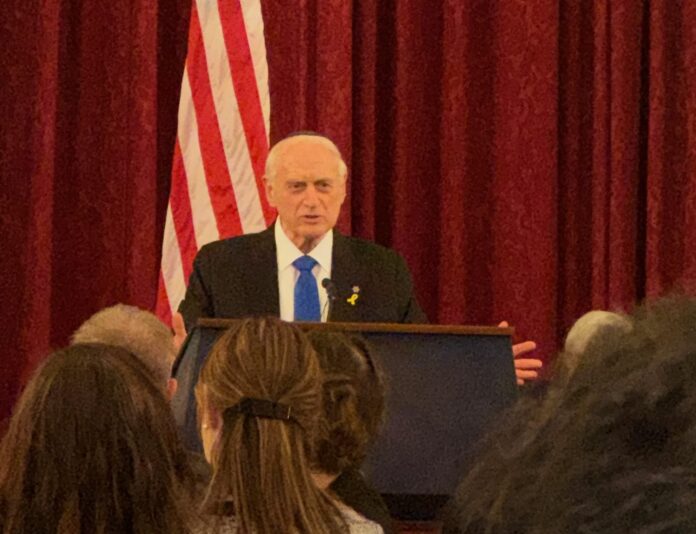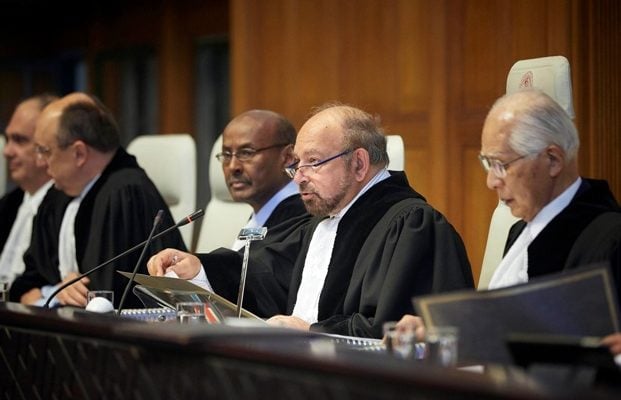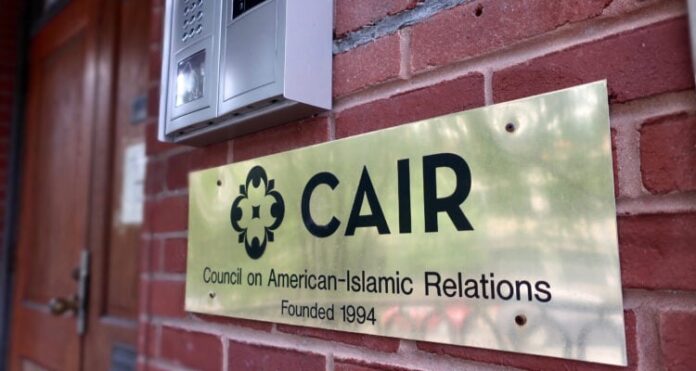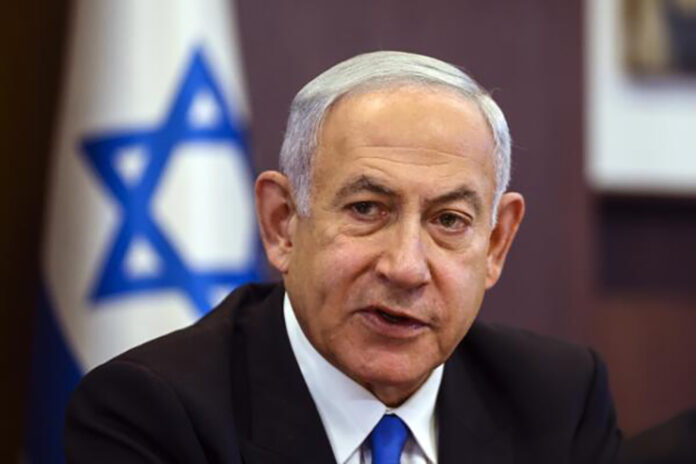Article and Photography by Lieba NesiS
On Wednesday Congress commemorated Jewish American Heritage Month with their Celebratory luncheon at the Kennedy Caucus Room in the Russell Senate Office Building in Washington DC.
Arriving in Washington the night before I was unsure what to expect from the afternoon and whether the 8-hour $800 one way trip-due to Amtrak’s power outage requiring me to take an uber midway-would be worth it. The afternoon was highly instructive and lent me a newfound confidence that Congress was steadfastly devoted to ensuring Jewish student’s safe return to campus; and that rising antisemitism was being met with significant pushback.

Entering the Russell Senate Office Building, constructed in 1903-1908 by John Carrere and Thomas Hastings, was truly an experience with its Beaux-Arts architectural style and 34 Doric columns accompanied by lavish marble, limestone, and granite throughout. The most historic portion, the Kennedy Caucus Room, which housed hearings on the Titanic, Pearl Harbor and Watergate, was equally exquisite with its original 1910 benches, a richly detailed ceiling and Corinthian pilasters emblematic of its grand past. The all kosher meat deli sandwiches got me back to reality as the over 200-person crowd came to celebrate being Jewish while addressing concerns of out-of-control anti-Semitism and paying homage to honorees Malcolm Hoenlein and Eric Gertler. Hoenlein, a friend for decades, and the former Chairman of the Conference of Presidents of Major American Jewish Organizations, is a giant the likes of whom will never be replaced. Senator Pete Ricketts of Nebraska noted that Hoenlein along with President Reagan was the initiator of Jewish Heritage Week in April 1988-with an actual proclamation enacted.


His advocacy for Israel and the Jewish people as a representative of more than 50 US Jewish groups during his reign from 1986-2018 was extraordinary meeting leaders ranging from Prince Charles to Syria’s Bashar Assad while miraculously averting controversy. If you think this nearly 80-year-old is resting on his laurels in Florida think again as the horrors of October 7th have sprung him into action evoking memories of his grandparents exterminated in the Holocaust. Hoenlein remarked his “Jewish identity is his identity” as he acknowledged with the advent of social media unlike the days of the Holocaust there is “no cloak of ignorance for failure to act.” Upon receiving one of many career awards bestowed upon him, Hoenlein exhorted the audience towards Jewish activism saying your grandchildren will ask what you did during these consequential times.


Acknowledging the role of China in the campus upheavals Hoenlein was critical of the recent misguided push for a two-state solution and stressed the necessity for supporting the government of Israel and its military. It was readily apparent from the large presence of Senators including Ben Cardin, Brian Schatz, Jacky Rosen, John Hickenlooper, Josh Hawley, Pete Ricketts, Sherrod Brown, Tim Kaine, Jeanne Shaheen, Jon Ossify, Michael Bennet, James Lankford, James Rich and US Representatives Brad Schneider, Debbie Wassermann Schultz and Kathy Manning that Friedlander and Hoenlein have a vast influence over the Halls of both parties in Congress. Extolling Hoenlein as a global Jewish leader, Democratic Senator from New Jersey Cory Booker gave a riveting speech decrying rising antisemitism on campuses while acknowledging remarkable achievements of Jews such as Jonas Salk, the creator of the Polio vaccine, and Albert Einstein, the creator of the Atomic Bomb formula. Heralding the Jews for their unwavering support of the Civil Rights Movement Booker said the best days of the Jews still lie ahead.

While many of the Congressional leaders voiced their unwavering support of Israel and blasted the ICC tribunal for its one-sided reprobation of Israel, Senator Tim Kaine of Virginia took it a step further as he remarked he had installed a mezuzah on his door to show solidarity with the Jewish community as Jews in Ontario and California have been vandalized for this religious emblem. The afternoon concluded with remarks by CEO and chairman of US News & World Report Eric Gertler whose digital company reaches over 450 million people annually. Heralded for his strong stance against Jew hatred in his positions of leadership at Harvard’s Kennedy School as well as his board appointments at Tel Aviv and Hebrew University, Gertler showed his concerns were heartfelt as he noted the urgency of recognizing Jewish accomplishments following October 7th.

Growing up in a traditionally Jewish family in Montreal Eric has called for stronger leadership on college campuses such as Harvard while speaking extensively about anti-Orthodox bias in mainstream media during his meeting to Boro Park’s JCC in June. At the 2:30 PM conclusion of the spellbinding afternoon guests enjoyed some chocolate babka and afternoon prayers as I walked the historic halls of Congress hopeful that the large amount of significant voices speaking out might finally result in a turnaround in the potentially calamitous state of affairs.
















